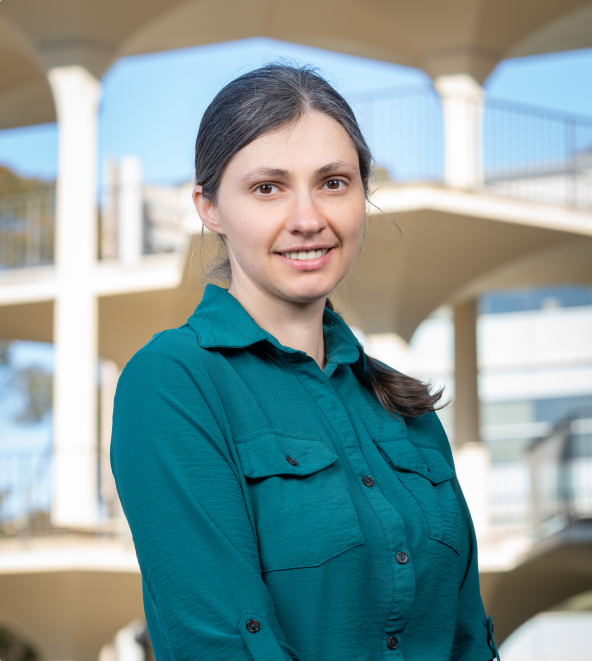Dr. Koslover, Elena F.
Department of Physics
UCSD
Seminar Information

Eukaryotic cells contain a variety of complex architectures that modulate the transport, distribution, and delivery of molecular components. In this talk we will explore the emergent structure and transport properties of the peripheral endoplasmic reticulum (ER), which forms an interconnected network of tubules spanning throughout the cell. Analytic calculations of mean first passage times, numerical reaction-diffusion simulations, and analysis of live-cell imaging data are used to demonstrate how the reticulated architecture of this organelle supports its ability to rapidly disperse and deliver proteins and calcium ions. Furthermore, we will show how a liquid network model, incorporating edge tension and new tubule growth, describes the emergent steady-state structure and dynamic rearrangements of the peripheral ER. The organelle system discussed here highlights the role of physical modeling in elucidating the interplay of structure and function in living cells.
Elena Koslover is a professor of physics at the University of California, San Diego. She obtained her undergraduate degrees in biology and mathematics at the California Institute of Technology, an MPhil in Chemistry from the University of Cambridge, and a PhD in Biophysics at Stanford University, where she worked on modeling genome mechanics and intracellular fluid dynamics. Her research group uses theoretical and computational techniques, together with analysis of quantitative data provided by collaborating groups, to understand how the morphology and organization of cellular structures determine the spatiotemporal distribution and interaction kinetics of intracellular components.
